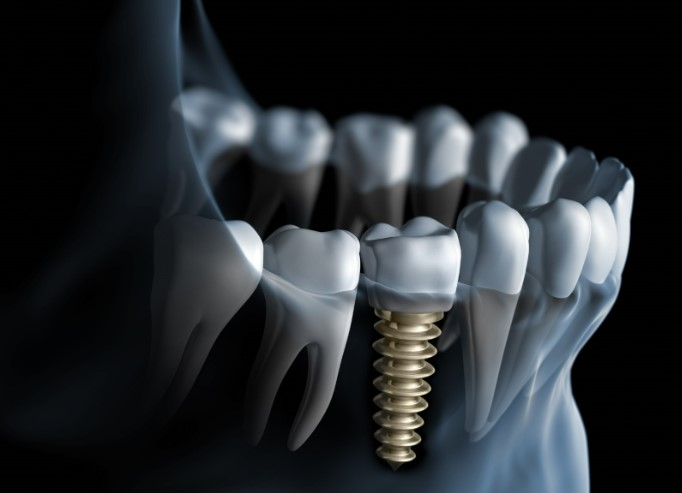|
Retire Early
Lifestyle
Retirement; like your parents, but way cooler

|
In 1991 Billy and Akaisha Kaderli retired at the age
of 38. Now, into their 4th decade of this
financially independent lifestyle, they invite you
to take advantage of their wisdom and experience. |
|
Getting
Dental Implants: Costs and Benefits Explained
Ry Kensington

Dental implants represent the gold standard for tooth replacement, combining
superior functionality with natural aesthetics. Unlike conventional dentures
that require frequent adjustments, implants provide a permanent restoration that
replicates both the look and performance of natural teeth. Whether you need a
single tooth replacement or a complete set of teeth, dental implants provide a
permanent fixture that helps maintain oral health and prevents bone loss.
For
a more detailed discussion, keep reading this article.
What Are Dental Implants?
Dental implants function as synthetic tooth roots, usually constructed from
biocompatible titanium, which are securely anchored into the jawbone through a
surgical procedure. These implants provide a durable platform for various tooth
replacement options, including individual crowns, multi-tooth bridges, or
full-arch prosthetic solutions. The titanium post gradually integrates with the
surrounding bone through a process called osseointegration, forming a permanent
and stable foundation for artificial teeth that closely replicates natural tooth
function.
Several factors to consider if you're looking for an
affordable dental
implants option include the type of implant, the extent of treatment
required, and your insurance coverage.
The Dental Implant Procedure
Your dentist will look into your jawbone density and general oral health during
the initial consultation. Then, you'll discuss whether any preparatory
treatments, such as bone grafting, may be necessary before creating a fully
customized treatment plan. If the bone loss is significant, you may require a
bone graft to support the implant adequately.
The
surgical procedure involves placing the metal implant post into the jaw bone.
Afterward, there is a healing process that can take several months, allowing the
bone to grow around the implant. During this time, you may wear temporary
dentures. Once healed, an abutment fixation screw is attached, followed by the
placement of the artificial tooth.
Benefits of Dental Implants
Dental implants provide remarkable advantages over traditional tooth replacement
options:
-
Natural look and feel:
Dental implants function like real teeth, providing a natural smile and
allowing you to eat soft foods and other items without difficulty.
-
Prevents bone loss:
Unlike removable dentures, implants stimulate the jaw bone, preventing bone
resorption and maintaining bone health.
-
Long-term solution:
Dental implants are designed to serve as permanent tooth replacement that
often outlasts conventional dentures, offering better long-term value
despite higher initial costs.
-
No damage to adjacent
teeth: Implants don't rely on healthy teeth for support, preserving your
natural tooth tissue.
-
Improved oral health:
You'll minimize the risk of gum disease and tooth decay with implants by
filling gaps left by missing teeth.
Combining exceptional durability, natural-looking aesthetics, and full chewing
function, dental implants provide the most reliable solution for completely
restoring both your smile and quality of life.

Potential Risks
Like other dental restoration procedures, dental implants also have a high
success rate and are safe in general. However, there are also potential
complications:
1. Implant Failure
On
rare occasions, implants can fail due to poor oral hygiene, gum infections, or
insufficient bone density. Smoking and uncontrolled medical conditions like
diabetes also increase the risk of implant rejection.
2. Surgical Risks
As
with any oral surgery, minor bleeding, swelling, and discomfort are common. In
rare cases, nerve damage or sinus issues (for upper jaw implants) may occur.
3. Infection Risk
Peri-implant disease, a type of gum infection around the implant, can develop if
proper care isn't maintained, potentially leading to bone loss.
4. Bone Graft Complications
If
you require a bone graft, the additional procedure extends healing time and may
introduce risks like graft rejection or prolonged discomfort.
5. Cost Considerations
Dental implants require a substantial investment, and since most insurance plans
only cover part of the expense, discussing financing early is crucial.
Although
these drawbacks are possible, they can often be significantly reduced by
selecting a skilled dental implant specialist and adhering closely to
post-surgery care guidelines.
Cost of Dental Implants
The
total cost of implants depends on factors like the number of missing teeth, the
need for bone grafts, and the dental provider's fees. A
single-tooth
implant can come at a premium price, but many patients find it a worthwhile
investment for a complete smile.
Dental implant coverage varies by insurance plan, with some policies partially
covering the crown or abutment but often excluding the surgical placement of the
implant post. Medical insurance may contribute if tooth loss is due to trauma or
medical conditions, but pre-approval and documentation are typically required.
Since many plans classify implants as elective, patients often combine partial
insurance benefits with out-of-pocket payments or financing options to manage
costs.
Conclusion
As
a permanent remedy for tooth loss, dental implants offer both structural and
aesthetic benefits that enhance oral health. If you're considering this
treatment, consult with a dental care provider to explore the best implant
option for your health condition and budget. Care for them well with oral
hygiene and consistent dental visits, and your implants can be a lifelong tooth
replacement, offering superior durability compared to other options.
For
those seeking an affordable dental implant option, discussing payment plans or
insurance coverage with your dental provider can help make the procedure more
accessible. Book a consultation appointment today to start your journey toward a
natural-looking tooth replacement.
For more on
Retirement Topics,
click here and
here and don't forget to signup for
our free Newsletter.


About the Authors



Retire
Early Lifestyle appeals to a different
kind of person – the person who prizes their
independence, values their time, and who doesn’t
want to mindlessly follow the crowd.
HOME
Book Store
Retire Early Lifestyle Blog
About Billy & Akaisha
Kaderli
Press
Contact
20 Questions
Preferred
Links
Retirement
Country Info
Retiree
Interviews
Commentary
REL
Videos
|